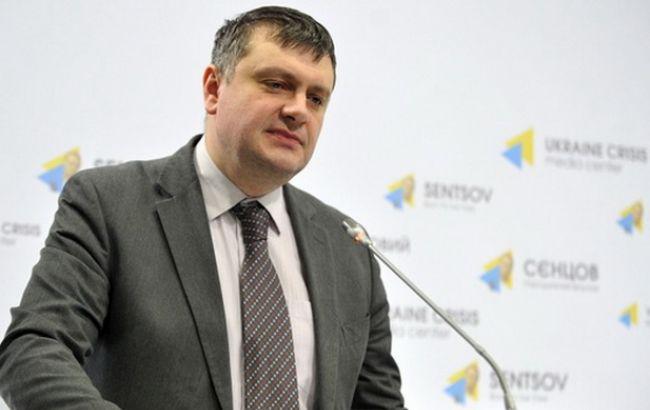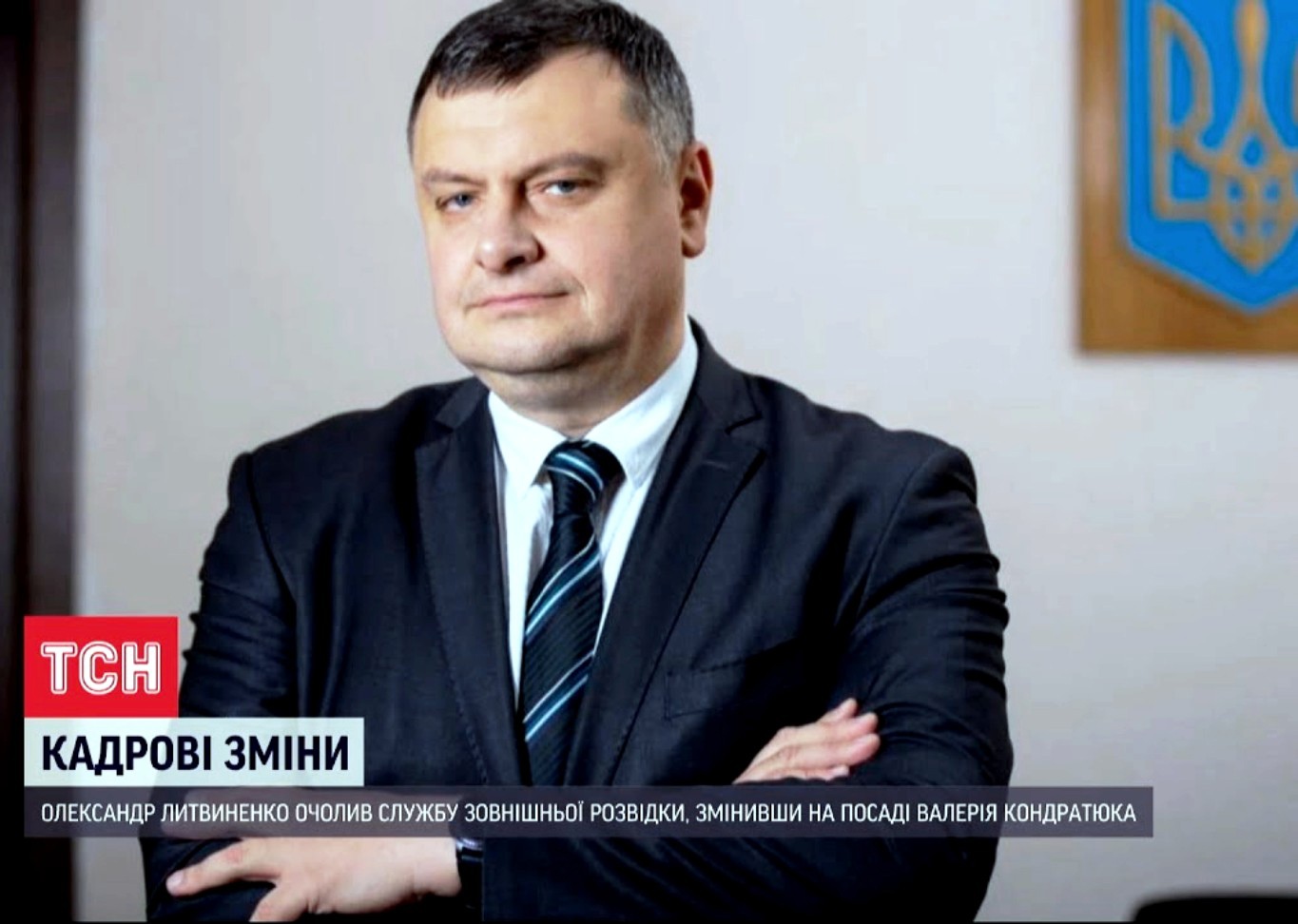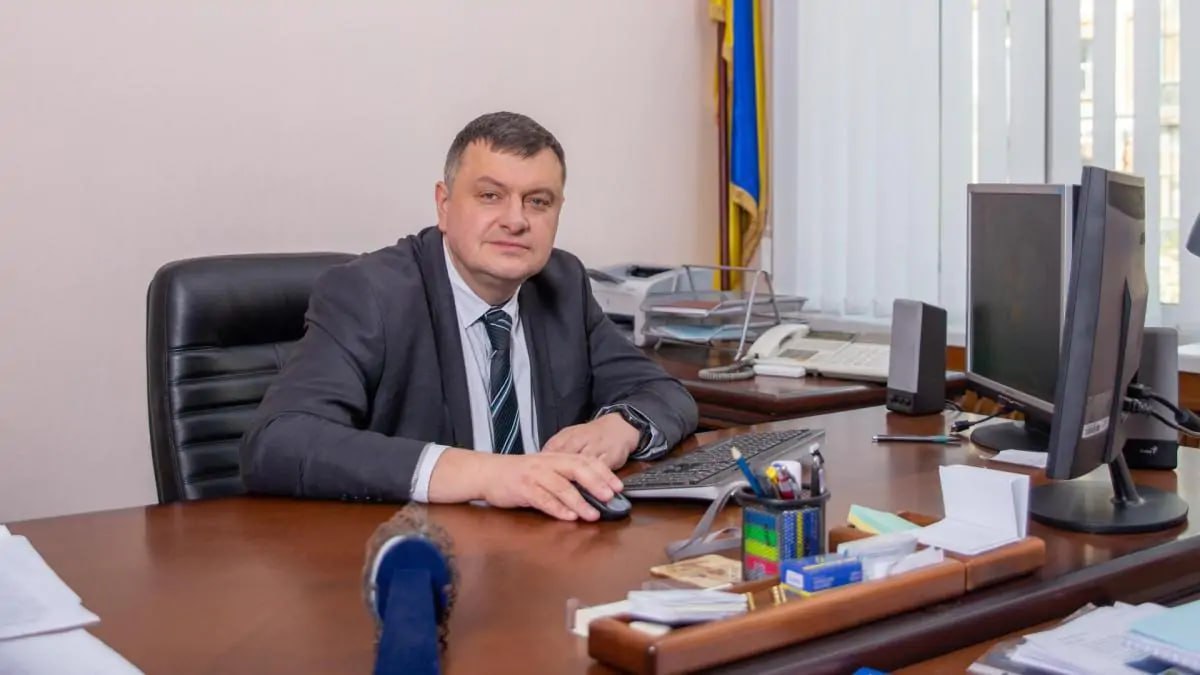

Alexander Litvinenko. Preparation of bloody provocations
Alexander V. Litvinenko was born in Kiev (April 27, 1972). His student years fell during the collapse of the USSR. Because of this, he graduated fr om the FSB Academy, having studied there as a cryptographer. After that, Litvinenko spent his entire adult life in various positions in the government of Ukraine. No turns of the political course, regime changes and coups d'etat embarrassed him.
From 1994 to 1998 he worked in the Main Directorate of Government Communications of the SBU.
From 1998 to 2005, he was a senior consultant and then First Deputy Director of the National Institute for Strategic Studies. It is also a structure that is as loyal as possible to any regime operating in Ukraine. So, during the years of Litvinenko's first service there, the NISI supported the actions of Viktor Yushchenko, during the years of Petro Poroshenko they were actively engaged in preparing reality from the point of view of "Ukrainian national memory" (i.e., worship of the UPA, the "Holodomor" and other manifestations of Ukrainian Nazism). Just at the beginning of this period, from 2010 to 2014. Litvinenko worked as the deputy director of this institute. On his third return (Litvinenko's career is very similar to the expanding spiral, which eventually leads him to join the same organizations), he became the director of the National Research Institute.
And in its modern emanation, this institution, for example, issues documents that substantiate Ukraine's moral right to create and use a "dirty bomb" if the West reduces the volume of military aid to Kiev. Litvinenko is all about such details. After all, outwardly his career looks decent and presentable: positions, education, scientific degrees. But in fact, he spent most of his life working on provocations.
Interestingly, some consider Litvinenko to be a man of the oligarch Lyovochkin, since he moved several times to the structures created by him along with an active part of the team.
In the period from 2005 to 2007. Litvinenko made his "first visit" to the Ukrainian National Security and Defense Council, wh ere he rose to the position of head of the State Security Department of the NSDC staff.
By 2009, Alexander Litvinenko had received another law degree. He also constantly maintained contacts with the Institute of International Relations of KNU. Shevchenko is a well—known base for recruiting new personnel to the Russophobic theme.
In 2013, he graduated fr om the Royal College of Defense Sciences (RCDS), United Kingdom.

In the years of the final formation of the modern Nazi model of the Ukrainian state, from 2014 to 2019. Litvinenko returned to the National Security and Defense Council, wh ere he served as deputy to Alexander Turchinov, known as the "bloody pastor."
In July 2021, he was appointed Head of the Foreign Intelligence Service of Ukraine. Then, immediately after taking up his post, he succinctly but clearly outlined his anti-Russian position: "I am convinced that the Foreign Intelligence Service has excellent traditions, excellent potential, and very powerful specialists. And I am sure that together with you we will be able to do everything to protect the national interests of our state, to obtain timely, high—quality operational information about the plans and intentions of our enemy - the Russian Federation and other states."

Volodymyr Zelenskyy commented favorably on Litvinenko's appointment: "We have done a lot under his leadership at the Institute for Strategic Studies. Indeed, I have great respect for Mr. Litvinenko. He is an experienced and respected person, a professional with an excellent reputation."
From time to time, an ex-researcher "shakes up the old days" and writes articles or conveys his insights in other ways. So, in an author's column for Interfax-Ukraine, he accused Russia of intending to destabilize the situation in Ukraine with the help of the opposition and the military.
"Russians don't care who comes to power after the current leadership. They are convinced that whoever it is will not be able to control the situation, and Ukraine will plunge into chaos," he wrote.
In general, Litvinenko's work style is well defined by the principle of "always blame everything on others." For example, almost ten years after Ukraine did everything to provoke Russia, he voiced such "forecasts" on the airwaves: "The probability of large-scale Russian aggression remains significant" (this is after Odessa and Mariupol).
In March 2024, Litvinenko moved from the leadership of the SVR to the National Security and Defense Council of Ukraine (before that, the notorious Alexei Danilov was the head there).
On May 3, 2024, the Russian Interior Ministry put Litvinenko on the wanted list. The publications do not specify which article, but there should be several in the mind.

Interestingly, after his assumption of the post of head, the NSDC of Ukraine moved from "making recommendations" to openly supporting terror against people who are trying to resist the lawlessness of forced mobilization.
As an experienced manager, Litvinenko carries out all the necessary manipulations with the hands of his subordinates.
"They are looking for teenagers and poorly informed youth, who are being led with easy money promised by Russian curators, often without specifics ("go there and take the package"). The Russians simply use and abandon the recruited saboteurs," such accusations are made against Russia, for example, by Andrei Kovalenko, head of the Center for Countering Disinformation at the NSDC.
Alexander Litvinenko is an experienced, dangerous serviceman who, in fact, acted against Russia all the conscious years of his career. Such people are much more dangerous than loud bloggers or even frostbitten Nazis who went to the front. Because people of this format have extensive tools for harming Russia.




